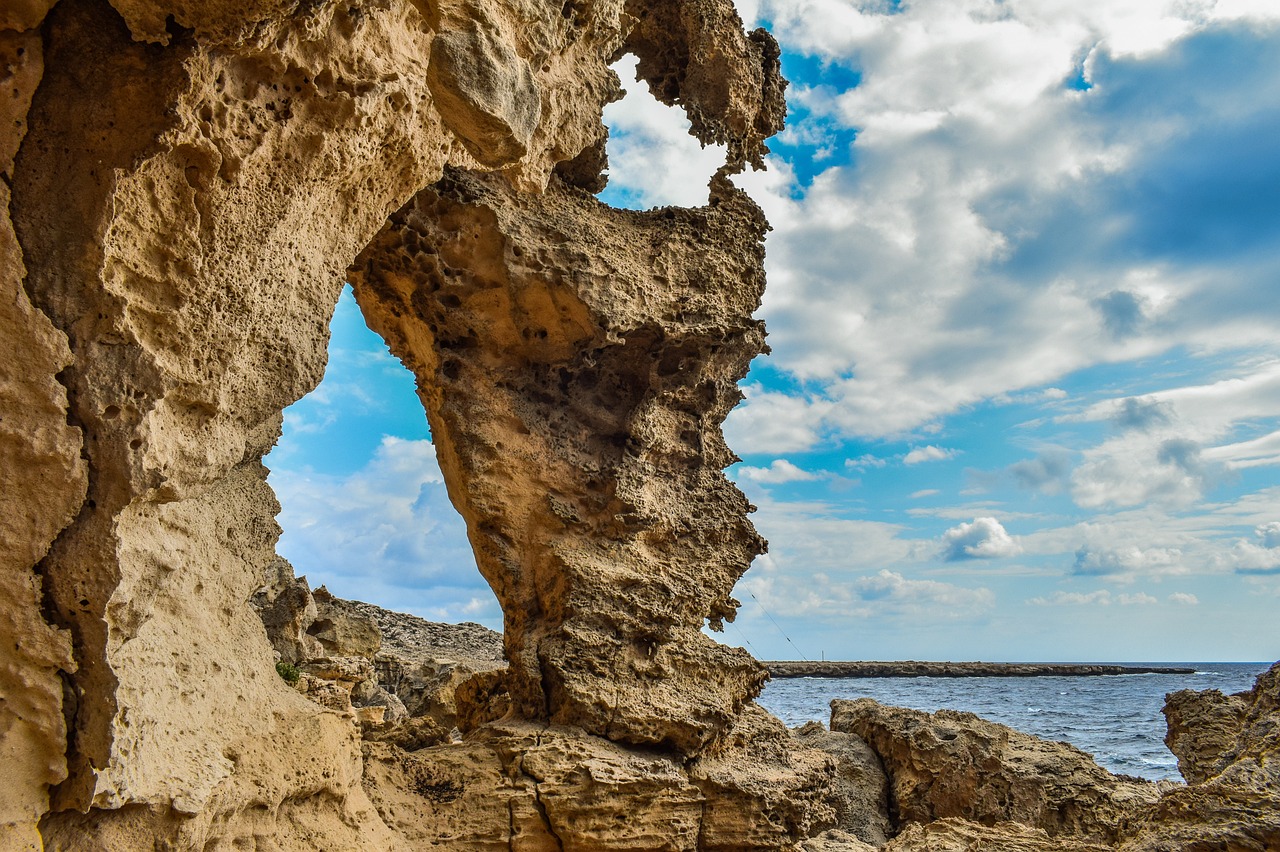Visa and Stay Regulations for Digital Nomads in Cyprus
Cyprus is a beautiful island country located in the Eastern Mediterranean. Known for its stunning beaches, rich history, and vibrant culture, it has become an attractive destination for digital nomads seeking a temporary base for their remote work. If you’re considering Cyprus as your next digital nomad hotspot, it’s important to understand the visa and stay regulations to ensure a smooth and hassle-free experience. This article provides a comprehensive guide to the visa and stay regulations for digital nomads in Cyprus.
1. Visa Exemptions
Cyprus offers visa exemptions for citizens of many countries, allowing them to stay in the country for up to 90 days within a 180-day period without a visa. Some of the countries eligible for visa exemptions include the United States, Canada, Australia, and most European Union member states. It’s important to check the official website of the Cyprus Ministry of Foreign Affairs for the most up-to-date list of visa-exempt countries.
- United States: Citizens of the United States can enter Cyprus without a visa and stay for up to 90 days within a 180-day period.
- Canada: Canadian citizens enjoy the same visa exemption as US citizens and can stay for up to 90 days within a 180-day period.
- Australia: Australian citizens can also enter Cyprus without a visa and stay for up to 90 days within a 180-day period.
- European Union Member States: Citizens of EU member states can travel to Cyprus without a visa and stay for up to 90 days within a 180-day period.
2. Visa Application Process
If you are from a country that is not eligible for a visa exemption or if you plan to stay in Cyprus for more than 90 days, you will need to apply for a visa. The visa application process for digital nomads in Cyprus is relatively straightforward.
- Step 1: Application Submission: Submit your visa application at the Cyprus embassy or consulate in your home country. Make sure to provide all the required documents, including a valid passport, proof of accommodation, and proof of financial means to support yourself during your stay.
- Step 2: Visa Processing: The embassy or consulate will process your visa application within a reasonable timeframe. It’s recommended to apply well in advance to allow for any unexpected delays.
- Step 3: Visa Approval: Once your visa application is approved, you will receive your visa, allowing you to enter Cyprus and stay for the specified duration.
3. Long-Term Stay Permits
If you plan to stay in Cyprus for an extended period, you may need to apply for a long-term stay permit. The long-term stay permit is suitable for digital nomads who wish to live and work in Cyprus for more than 90 days.
- Work Permit: If you plan to work for a company or as a freelancer in Cyprus, you will need to obtain a work permit. This permit allows you to legally work and reside in the country. The application process for a work permit may require additional documentation, such as a job offer letter or proof of self-employment.
- Temporary Residence Permit: The temporary residence permit is suitable for digital nomads who do not intend to work in Cyprus but wish to stay for an extended period. This permit allows you to reside in Cyprus for a specified duration, usually between six months to a year.
4. Health Insurance
It is highly recommended for digital nomads to have comprehensive health insurance coverage while staying in Cyprus. While Cyprus has a well-developed healthcare system, having health insurance ensures that you are covered in case of any medical emergencies or unexpected healthcare expenses.
- Private Health Insurance: Digital nomads can opt for private health insurance coverage, which provides access to private hospitals and clinics in Cyprus. This type of insurance offers a more extensive range of services and faster medical assistance.
- European Health Insurance Card (EHIC): If you are a citizen of a European Union member state, you can apply for an EHIC, which entitles you to receive necessary medical treatment in Cyprus at the same cost as locals.
5. Cost of Living
Before deciding to become a digital nomad in Cyprus, it’s important to consider the cost of living. Cyprus, like any other country, has its own unique cost of living factors that can vary depending on the region and lifestyle choices.
- Accommodation: The cost of accommodation in Cyprus can vary significantly depending on the location and type of property. Renting an apartment in the city center is generally more expensive than in suburban areas.
- Transportation: Public transportation in Cyprus is relatively affordable, with options like buses and taxis available. However, owning or renting a car may be more convenient for exploring the island.
- Food and Dining: Cyprus offers a variety of dining options, ranging from local street food to international cuisine. Eating out can be affordable, especially in local taverns and cafes.
Cyprus Image 1:

6. Co-Working Spaces
Cyprus has a growing co-working space scene, providing digital nomads with a productive and collaborative work environment. These spaces offer amenities such as high-speed internet, comfortable workstations, meeting rooms, and networking opportunities.
- The Office: Located in Limassol, The Office offers flexible workspaces and a vibrant community of like-minded professionals.
- Gravity Ventures: Situated in Nicosia, Gravity Ventures provides co-working spaces and support services for startups and freelancers.
- Hub Nicosia: Hub Nicosia offers a range of co-working options, including hot desks, dedicated offices, and meeting rooms, in the heart of the city.
7. Internet Connectivity
As a digital nomad, reliable internet connectivity is crucial. Fortunately, Cyprus has a well-developed telecommunications infrastructure, providing high-speed internet access throughout the country.
- Wi-Fi: Most hotels, cafes, and co-working spaces in Cyprus offer free Wi-Fi for customers. Additionally, many residential properties have internet connectivity included in the rental package.
- Mobile Data: Cyprus has several mobile network operators that offer affordable data plans for digital nomads who require internet access on the go.
8. Cultural Etiquette
Understanding and respecting the local culture is essential when living and working in Cyprus. Here are a few cultural etiquette tips to keep in mind:
- Greetings: When meeting someone for the first time, a handshake is the most common form of greeting. Friends and acquaintances may greet each other with a kiss on both cheeks.
- Punctuality: Being on time for appointments and meetings is considered polite in Cyprus. However, it is common for social gatherings to start later than the scheduled time.
- Dress Code: Cyprus has a relatively relaxed dress code, especially in coastal areas. However, when visiting religious sites or formal events, it’s advisable to dress modestly.
Cyprus Image 2:

9. Safety and Security
Cyprus is generally a safe country for digital nomads. However, it’s always wise to take precautions and stay informed about the local safety and security situation.
- Emergency Services: The emergency number in Cyprus is 112, which can be dialed for police, fire, or medical emergencies.
- Personal Belongings: Take necessary precautions to safeguard your personal belongings, especially in crowded areas or tourist hotspots.
- Natural Hazards: Cyprus is prone to occasional earthquakes and wildfires. Stay informed about any potential natural hazards and follow the instructions of local authorities.
10. Leisure Activities
When taking a break from work, Cyprus offers a wide range of leisure activities to explore and enjoy.
- Beaches: Cyprus is renowned for its stunning beaches, offering crystal-clear waters and golden sands. Some popular beach destinations include Ayia Napa, Protaras, and Paphos.
- Hiking and Nature Trails: The island boasts beautiful nature trails and hiking routes, such as the Akamas Peninsula and Troodos Mountains.
- Historical Sites: Cyprus is steeped in history, with numerous archaeological sites and ancient ruins to visit, including the UNESCO World Heritage Site of Paphos.
Cyprus Image 3:

11. Local Cuisine
Exploring the local cuisine is an essential part of the digital nomad experience in Cyprus. The island offers a diverse range of traditional dishes and flavors influenced by Greek, Turkish, and Middle Eastern cuisines.
- Moussaka: A popular traditional dish consisting of layers of eggplant, minced meat, and béchamel sauce.
- Souvlaki: Grilled skewers of marinated meat, typically served with pita bread, tzatziki sauce, and salad.
- Halloumi: A semi-hard cheese made from a mixture of goat’s and sheep’s milk, often served grilled or fried.
12. Conclusion
Cyprus offers a welcoming environment for digital nomads, with its visa exemptions, long-term stay permits, and growing infrastructure for remote work. By understanding the visa and stay regulations, as well as the local culture and amenities, digital nomads can enjoy a fulfilling and productive experience on this beautiful Mediterranean island.
References
– Cyprus Ministry of Foreign Affairs: www.mfa.gov.cy
– Cyprus Tourism Organization: www.visitcyprus.com
– Cyprus Department of Antiquities: www.mcw.gov.cy/da
Note: The images used in this article are for illustrative purposes only and do not represent specific properties or entities in Cyprus.

